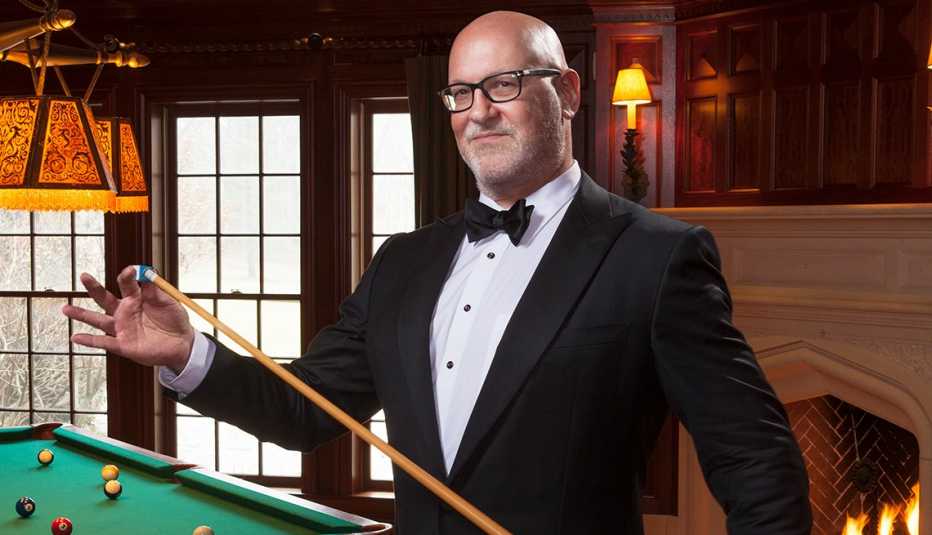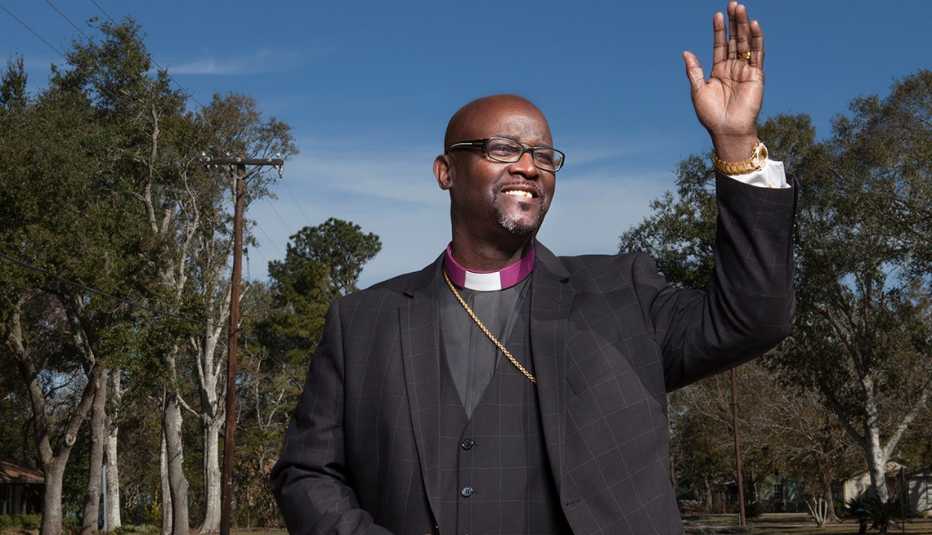AARP Hearing Center
Over a century ago, “Keeping Up With the Joneses” was created to make us laugh. A daily comic strip that ran from 1913 to 1938, it chronicled the bumbling quest of the McGinis family to match the lifestyle of the always unseen Jones family next door. At some point, we started to take the idea seriously. Putting two cars in every garage and a chicken in every pot became a national obsession, and if the neighbors added aluminum siding, we’d find a way not only to match them but to surpass them. That, in large part, became the American dream of our parents’ generation.
Yet does it hold true today? Do most Americans still see more money and more stuff as the path to a good life? To answer that question, we turned to the very real people the catchphrase evokes. For over a year we talked with Joneses from across America—some rich, some poor, many in between — and asked them what they thought about money. The answers were decidedly mixed. Some still view money as the bridge to a better life, believing more is generally better than less. Others see it simply as a necessity of basic existence; family, friends, the heart and experiences, they say, are the true sources of joy. Who would you rather keep up with? We present: the United States of Jones.
Ben Jones, 55
Bike-shop owner
Annual income: $80,000 and growing
Retirement strategy: “My business is my retirement. I’ll grow the wealth, and that wealth will be my future.”
The upkeep: Jones’ debt includes $200,000 on a home he built himself that’s now worth $360,000, and about $10,000 in credit card debt he plans to pay off in the next two years. He has set aside about $50,000 in liquid cash. His wife, Monica, earns $26,000 at a school-district job; this covers household expenses. All other income goes into the bike business.
How he earned it: “I used to run corporate cafeterias in the Kansas City area. A few years ago I noticed there were no bike shops in our small town and decided, at age 49, to take $95,000 from savings and open a cycling store. I don’t wear spandex or enjoy snobby bike talk. But I found a niche selling recumbent three-wheeled trikes. People started driving from 200 miles away to buy them. Pretty soon I was named dealer of the year.” Up until 2018, Jones’ business had gone up 50 percent in sales each year; this year the income is keeping pace with what he made last year, and he opened a second shop last month. “Monica and I are homebodies,” he says, “so we’re not spending on entertainment. We sometimes clip coupons, and we buy generic brands. I don’t consider myself a millionaire, but I will be one by age 60.”
The meaning of money: “I’m not extremely motivated by big wealth, though I’m learning to appreciate it. Having money gives you the comfort of knowing the bills will be paid and your needs will be met. You won’t end up in the poorhouse. My dad was a wealthy man, a doctor. He could buy a Mercedes-Benz and pay cash, but he drove a Honda Civic. He taught me to value the peace of satisfaction rather than chasing after some dream.”


Guy Winfred Jones, 62
Retired pest-control worker
Annual income: Around $12,600 in Social Security disability benefits for work-related illness, plus about $1,200 in royalties from a book he cowrote on early-childhood education
Retirement strategy: “I wish I could say I have a plan, but I really don’t. Social Security is my lifeline.”
The upkeep: It’s tight. The $1,051 Jones gets monthly from the government covers his $600 rent and his medical copays not covered by insurance. He has eight kids and 16 grandkids, and the family helps out with utilities and groceries.
How he earned it: “As a little one, I was very poor but didn’t know it. We didn’t have food sometimes, so my brothers and I would run down to the creek and go fishing. It was fun, and we were contributing. I’m a full-blood Lakota, and the name ‘Jones’ has deep implications. It was an attempt to ‘civilize’ us, to take away our Indian-ness. I left the reservation in 1974 and eventually got a job spraying houses for bugs. Everybody assumed I was an environmentalist because of that Indian from TV with the tear rolling down his face. People felt safe with me, and I made good commissions. I was earning $275 a week. Come to find out all those sprays were nerve poisons. I wore a respirator, but the poison still absorbed through the skin. I got tumors, needed surgeries and had to quit working.”
The meaning of money: “Trouble is, once you get money, you spend money, and you always end up wanting more. I tell my kids all the time: Be wise with your money. Save it. Invest. Build up equity. Prove your worth. Me, I’ve had my ups and downs — married and divorced three times. I’ve had my car repossessed. I’ve had my home foreclosed on. It’s not been easy, but life goes on. I probably feel the poorest when my kids ask me for things and I’m not able to help.”










































































